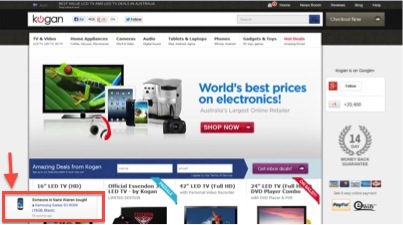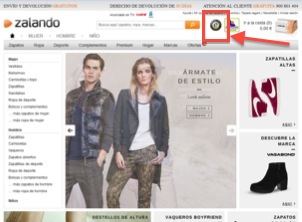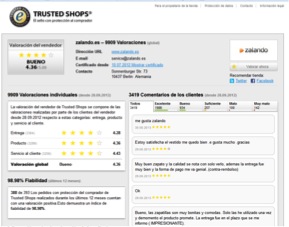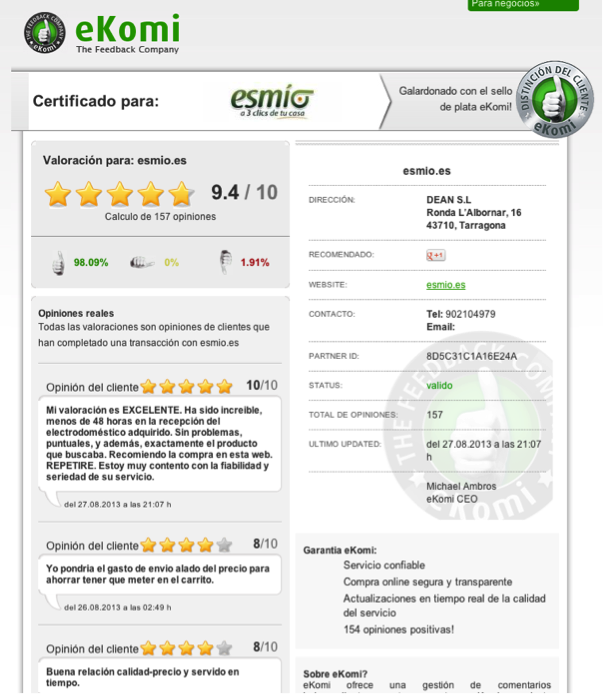Social proof and crowded restaurants
This famous quote attributed to Henry Ford (yes, the one from the cars) came to my mind after reading a very interesting article about human behavior and how to apply it to improve the results of our online business or e-commerce. Its title is “The secret power behind why we pick crowded restaurants over empty ones“.
What it says is that the reasons why we pick a crowded restaurant over an empty one, stores with long lines in the cash register over empty ones, certain clothes over others, certain cars, etc. are many:
- In a natural way, people want what others have got.
- We think it is safe to make certain decisions (buying in that store, eating in that restaurant, driving that car, etc.) when we see many others before us have taken it.
“Speaking clearly, we prefer to use someone else’s brain rather than ours. We prefer to lean on the decisions that others made before having to do the exercise of thinking about them ourselves. It happens that, as we said at the beginning, Henry Ford has already said it. “Thinking is the hardest work there is, which is probably the reason so few engage in it.”
Speaking in a more technical way, this human behavior is known as Social Proof or information social influence, which, according to Wikipedia, is a psychological phenomenon where people assume the actions of others in an attempt to reflect correct behavior for a given situation.
Application to online businesses
And once we know about this human behavior, how do we use it to attract and turn it into more clients in our online business? In Ruslan Kogan’s original article (Kogan.com ecommerce’s CEO) speaks about how (when years ago he had a toy store in a shopping centre) he paid his younger cousin and his school friends to play every day in his store after seeing how, after the first day they came, they attracted so many people that he had an spectacular sales peak (remember, people attract people).
In his online period, Ruslan Kogan tells us how he transferred that experience to his online store and that it works. Making an e-commerce buyer feel he is in a crowded store is much more complicated than in a physical store, but it is possible.
Let’ see different examples about how to encourage shopping by making your user feel he is in a crowded store and full of life.
It is “simple”: show him things that help him make the decision of buying basing in that many others have taken or are making the same decision. As we already know, his subconscious will tell him that making that decision is the right thing to do.
Let’s start with the solution Kogan.com chose and that worked for them. When you enter their e-commerce messages start to pop up from the lower part of the screen informing you about what people are buying in the store. It is true that you get the feeling that you are buying in the company of other people… and maybe you end up choosing to buy those products before others…
Another way of generating confidence, of making you feel that you are in an e-commerce that many others chose before you, is to show in the website the number of followers you have in social networks (the most exploited option).
Beware of showing your numbers too soon because if they are low, you cause the exact opposite effect. You are showing your users (the people who enter through you store’s door) that they are in an empty store and they might end up leaving it.
Another way of generating confidence in your website is through ratings and reviews that users leave in social networks or other rating systems like eKomi or Trusted Shops. More than once you have probably decided to go to a restaurant/hairdresser or to hire certain services after reading the good comments somebody left in Facebook. Or, probably, you have read the comments people left about a hotel before deciding to book your holidays.
Zalando, a German online fashion store uses as a rating system Trusted Shops and Esmío, a Spanish electrical appliances online store uses eKomi. These rating systems are external and give a score/stars or, in ekomi’s case, distinction seals (standard, bronze, silver and gold) according to the evaluations clients give them. When hiring, as an online shop, those rating systems you can choose to hire the plan to get your store’s evaluation and the general purchase experience or to evaluate each product.
As the last example, the way Themeforest, (an e-commerce that sells Premium Wordpress themes) transmits the concept of a full store and full of confidence. Themeforest shows you how many people bought the theme and lets you see the thousands of comments people left about the product. The bad thing is that as it is the same website which shows this information you can’t avoid distrusting the data and comments…
It’s clear that the more unrelated the data and comments are to the store, the more confidence they will generate. Even though, these are good practices to do in our online business.
To conclude, consumer confidence must be earned and it is hard work. Thanks to our instinct and subconscious, we tend to copy and to follow the herd. This is a phenomenon that we mustn’t lose sight of. We tend to forget concepts and strategies that seem obvious in the offline world when we move to the online world. Maybe we should be creative and implement it in another way but remember that the same principles are applied to both worlds. After all, it’s people who buy online and offline.
Do you know more examples or methods to show our users they are in a crowded online store? Use the comments and tell us.






